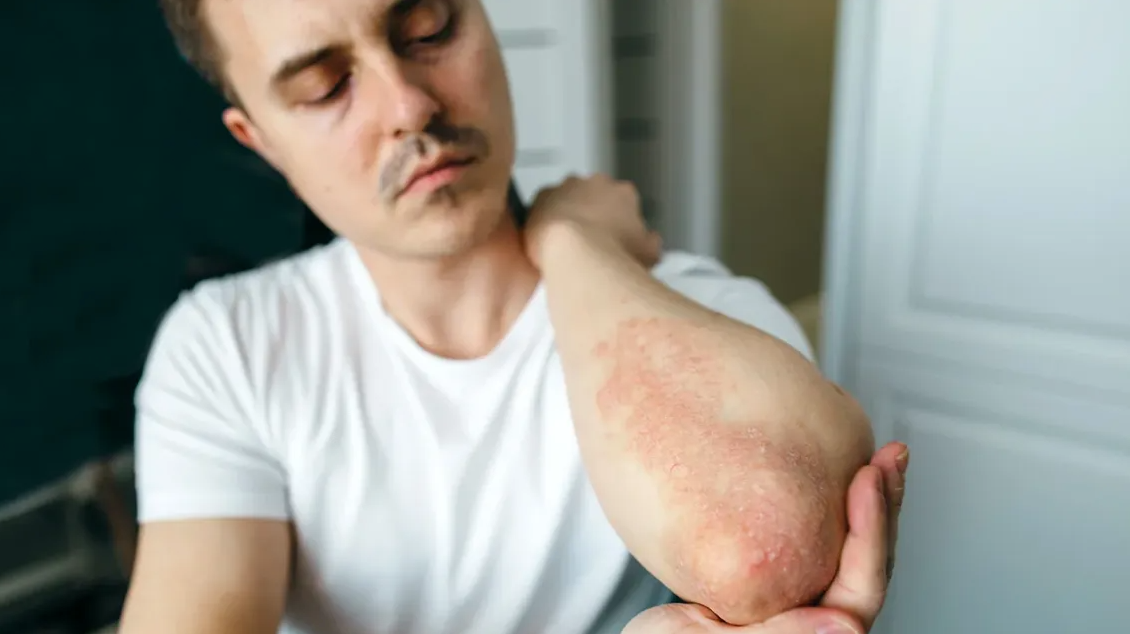Psoriasis Treatment in Guilford

Guilford Dermatology: Comprehensive Psoriasis Solutions
Over 125 million people around the globe are currently facing the challenges of psoriasis.
While the precise cause of this autoimmune skin condition remains elusive, research indicates that genetics and other autoimmune disorders are significant contributors.
In a healthy individual, skin cells renew approximately every 30 days. In contrast, psoriasis accelerates this process, causing new skin to form within just 1 to 4 days. This rapid turnover results in the development of inflammatory patches. Before starting your psoriasis treatment at Guilford Dermatology, our specialists will review your medical history, mental health, hormonal levels, and lifestyle factors to tailor an effective treatment plan.
What is
Psoriasis?
Psoriasis is an autoimmune skin disease characterized by accelerated skin cell production, leading to red, rough patches on the skin’s surface. These inflamed areas can be itchy and may cause a burning sensation when touched. Although psoriasis is not contagious, it can run in families.
What Psoriasis Treatment Addresses
What to Expect from Your Psoriasis Treatment at Guilford Dermatology
Available Treatments for Psoriasis
Corticosteroids
- Corticosteroids
- Light or UV therapies
- Retinoid creams
- Injectable treatments
- Biologics
- Lifestyle modifications
About Guilford Dermatology
At Guilford Dermatology, we take a unique approach. Our physicians utilize their extensive knowledge to deliver not only outstanding results but also a remarkable patient experience. With a foundation of genuine honesty and a commitment to education, we ensure our patients receive unparalleled care.
Frequently Asked Questions
Does psoriasis go away on its own?
No, psoriasis is a chronic condition with no cure. However, effective treatment at Guilford Dermatology can lead to remission, making symptoms nearly invisible. Maintaining remission requires ongoing care, so we recommend regular visits to monitor your skin’s progress.
Can psoriasis spread?
While psoriasis is not contagious, it can spread from one part of the body to another. Typically starting as a small patch, psoriasis can expand into larger, scaly areas across the face and body. By effectively managing your psoriasis and minimizing flare-ups, we can help prevent further spreading or worsening of the condition.
What is "psoriasis fatigue"?
Many individuals with psoriasis report experiencing chronic fatigue. Although the precise cause of this fatigue remains unclear, some researchers suggest that chronic inflammation linked to psoriasis may deplete both physical and mental energy.



